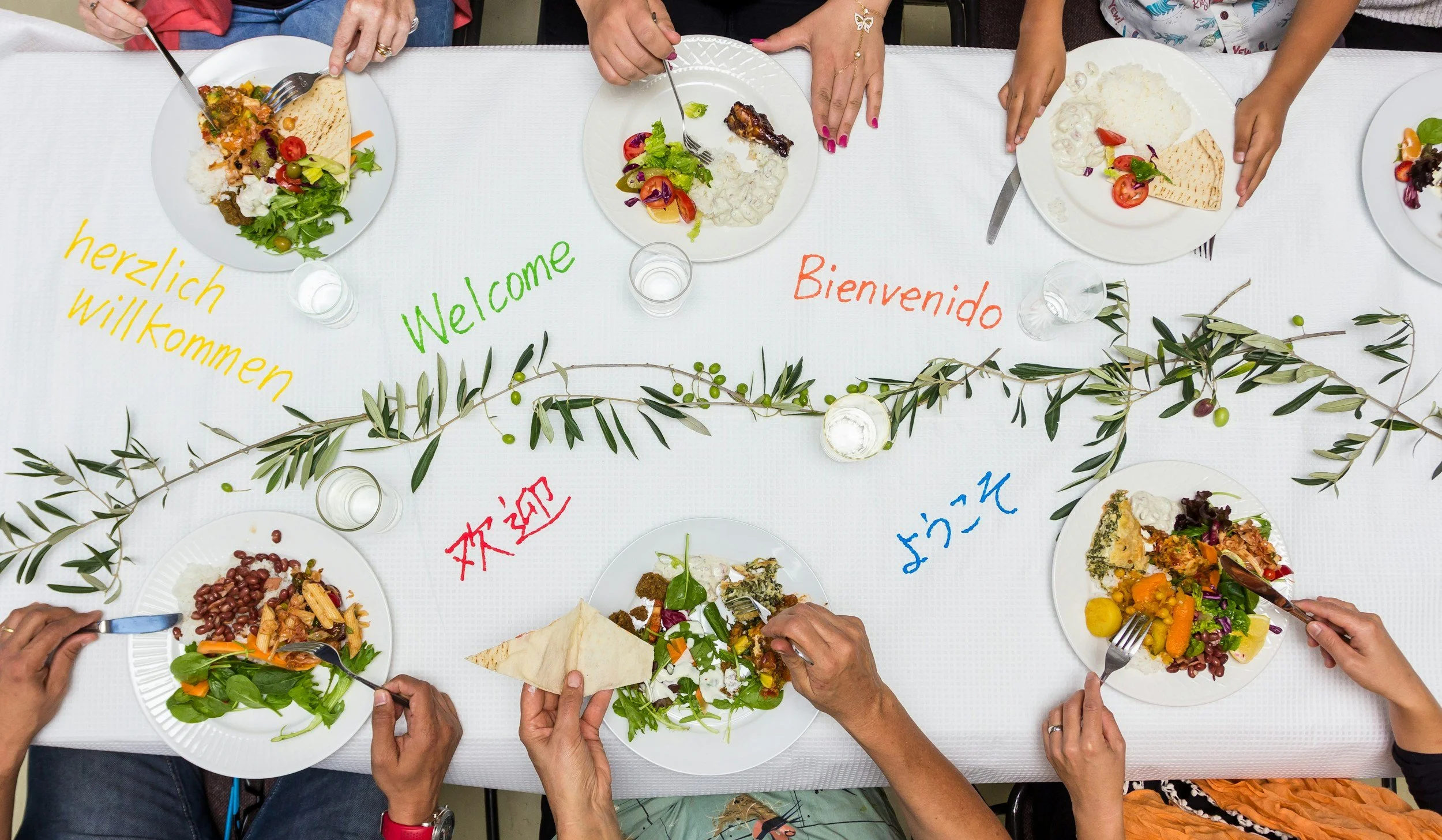
You Deserve to Feel Seen, Heard, and Held—Together.
When cultures, languages, histories, and identities meet inside one relationship or family, love can be both a home and a place of exile.
You don’t have to navigate that alone.
There is a particular kind of loneliness that comes when your love doesn’t fit neatly into anyone else’s story.
You may come from different cultural or religious backgrounds.
You may be navigating immigration, diaspora, or layers of inherited trauma.
You may have moved away from systems of support, or never had one to begin with.
And so love becomes the only home you have.
Even inside your closest relationships, you can feel unseen, misunderstood, or emotionally alone.
This is not because you are broken.
It is because belonging is something we build together,
with intention, patience, and care.
When Love Feels Like a Place You Can’t Quite Land
Feeling like you must explain your identity, your reactions, or your cultural values to your partner or family.
Carrying the weight of being the “bridge” between worlds, traditions, or expectations.
Losing parts of your language, humor, stories, or faith—and grieving silently.
Partners who love each other deeply yet feel like they are speaking completely different emotional languages.
The ache of longing for “home” while not knowing where home truly is anymore.
Feeling psychologically homeless—belonging everywhere and nowhere at once.
This kind of disconnection is quiet, subtle, and often invisible.
But its impact is profound.
Why This Hurts So Much
Because We Are Wired for Belonging.
Every human being needs to feel recognized—
not just for what they do, but for who they are, who they came from, and who they are becoming.
In multicultural relationships and families, the work of recognition is layered:
Listening across cultures
Honoring inherited histories
Making room for grief and identity shifts
Learning new ways of relating that feel safe and mutual
Without support, this can lead to emotional distance, misinterpretations, and exhaustion.
With support, it becomes a powerful place of shared growth, tenderness, and solidarity.
How We Can Work Together
A Regulated, Resourced, Relationship-First Approach
At Sahava, we draw from PACT (Psychobiological Approach to Couple Therapy) and attachment-informed family work.
This means:
We slow down enough to understand what is happening beneath the conflict.
We learn how each partner’s nervous system responds to emotion, stress, and closeness.
We create safety, curiosity, and openness—without blame or shame.
We build a shared emotional language unique to your partnership or family.
Our work invites you to:
Reclaim stories, identities, and traditions that matter to you.
Mourn the losses, displacements, or ruptures that have shaped you.
Create rituals of connection and repair.
Build a relationship that feels like a shared home, not a negotiation.
Before…
Feeling misunderstood or emotionally alone
Conflict rooted in cultural or identity disconnects
Carrying grief or displacement silently
Feeling like love is fragile
After…
Feeling recognized, valued, and emotionally connected
Curiosity and shared language around differences
Making space for grief to be witnessed and honored
Feeling like love is a place that holds you both
FAQs
Will you take sides in our sessions?
No. In PACT, the relationship itself is the client. We support both of you with compassion and care.
We don’t share the same language fluently. Will that be a barrier?
Not at all. We honor multiple languages—spoken and unspoken. Meaning lives in gestures, tone, pacing, and presence.
Do we have to share our family histories?
Only at your pace. We move gently, so your story feels held—not exposed.
Who is this for?
Multicultural couples and families
Interfaith relationships
Immigrant, first-generation, or diaspora experiences
Couples navigating cultural transitions, identity shifts, or relocation
Families with complex relational histories
Partnerships where one or both partners feel psychologically or relationally “unrooted”



